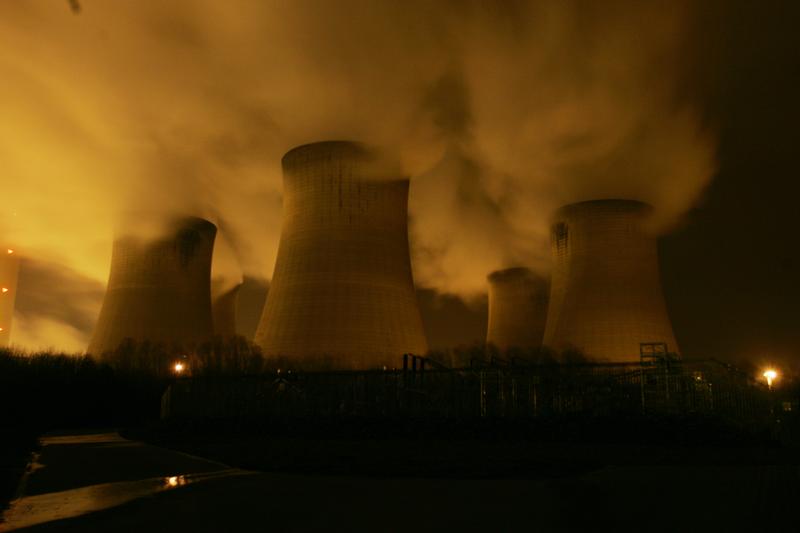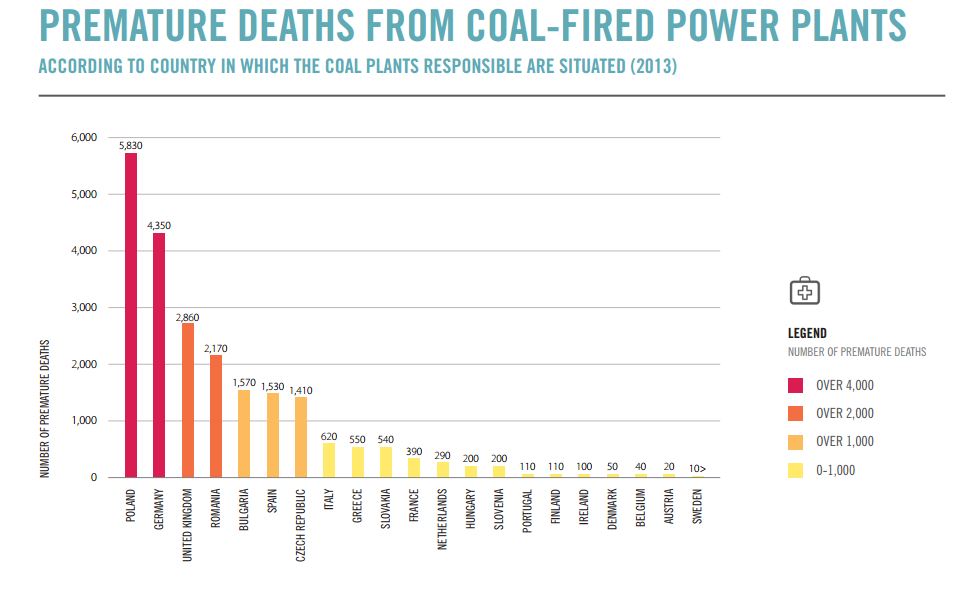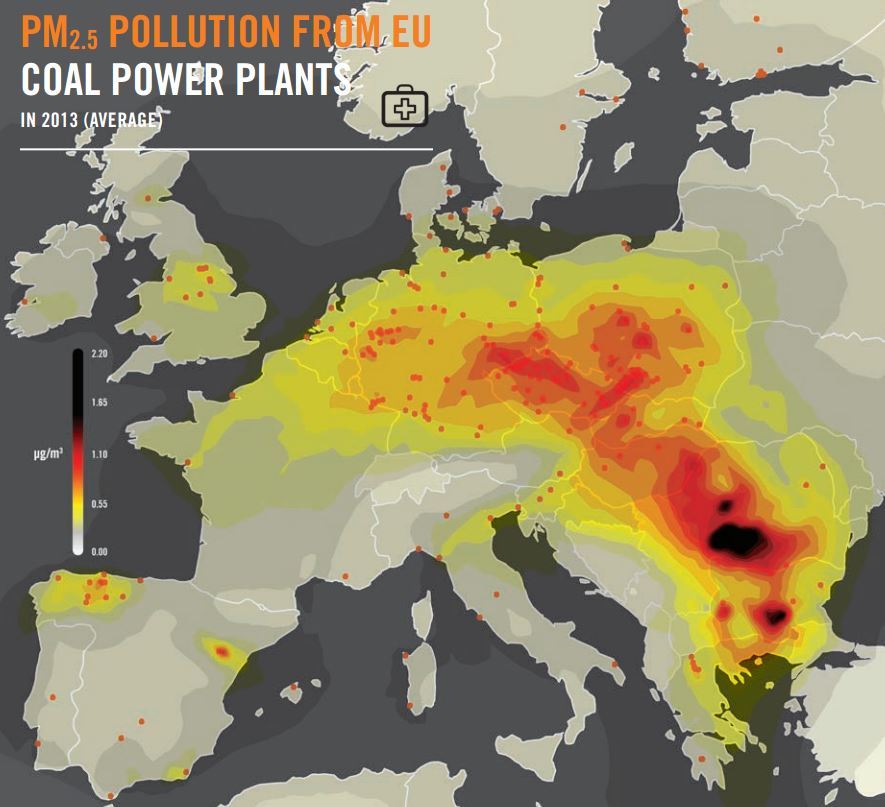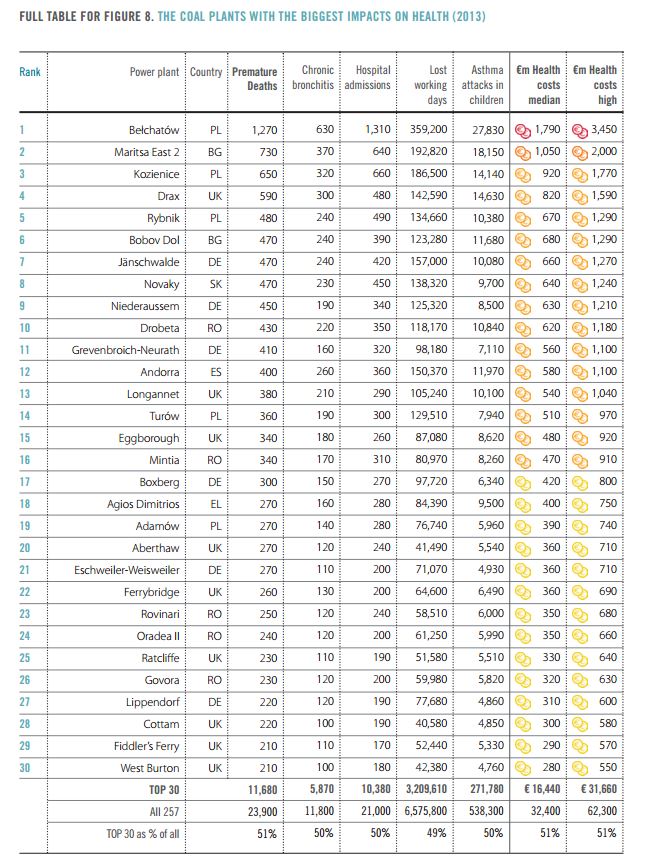UK coal phaseout to prevent thousands of air pollution deaths

The UK’s planned coal phaseout could prevent thousands of premature deaths at home and abroad, according to new research.
Pollution from the UK’s quickly diminishing coal-fired fleet causes roughly 2,900 premature deaths a year, nearly half of which are on the continent.
But, as the British government recently reiterated its commitment to getting off coal power by 2025, the German government reportedly scrapped its own 2050 phaseout target.
Germany’s coal plants are behind an estimated 4,300 premature deaths a year — with around 2,500 of those occurring in neighbouring countries.
Only Poland’s coal causes more health damage across the continent.

22,900 deaths in Europe
Europe’s Dark Cloud, a new report from HEAL, CAN and WWF, details the health impacts of the 280 coal-fired power plants in the European Union, which together provide 24% of the bloc’s electricity but are responsible for 18% of all greenhouse gas emissions.
It estimates that these plants cause 22,900 premature deaths a year, at a huge health cost of €62.3 billion.
Most of the deaths are from PM2.5, the microscopic particles in polluted air which creep into the blood stream and cause diseases like cancer, respiratory illness and heart disease.

Borderless
What emerges is a sort of macabre toxic exchange as European partners “swap” pollution, with Polish plants causing an estimated 620 premature deaths in Germany while German plants cause 210 deaths in Poland.
But the pollution travels much further, right across the continent so that the people of France or Greece, who live hundreds of kilometres from a power plant, are being harmed by emissions from Poland – a country they may never even have visited.
In fact, more than half the premature deaths caused by polluted air from power plants do not occur in the country where the power plant is located, but elsewhere in Europe.
The EU has more than just free movement of goods, services and people, it has free movement of air pollution — and you can’t just have a referendum to get rid of that.
Dirtiest plants
The report provides a list of 30 of coal-fired power stations across the continent, which are responsible for 51 percent of premature deaths. Six of these are in Germany, five in Poland.
The most toxic plant is at Belchatow in Poland, which alone causes an estimated 1,270 premature deaths a year. Bulgarian plants are also particularly dangerous, because Bulgaria and Romania are exempt from EU emissions standards.
Even though Germany boasts comparatively low rates of NOx and SO2 emissions, the sheer volume of coal burned makes its plants some of the most polluting in Europe. It is home to five of the worst six more CO2 emitting plants.
Coal phaseouts
This comes as Germany appears to be abandoning plans for a fixed timetable to close down its coal-fired power sector. An earlier draft of the government’s national climate action plan had proposed phasing out coal power well before 2050.
But it’s been watered down, under pressure from coal-producing regions, business and unions. It may now be difficult for Germany to meet it ambition of cutting mid-century carbon emissions target.
The UK has committed to phasing out all coal-fired power by 2025. But in the meantime, it has 9 plants in the toxic top 30, which cause nearly 2,900 premature deaths a year, 1500 in the UK — but 1,350 in France, Belgium, Germany and the Netherlands.
The terms of Brexit from the EU have yet to be even debated, let alone decided. But the impact of the UK’s coal sector on the health of its neighbours shows you can’t withdraw from Europe, not really.

